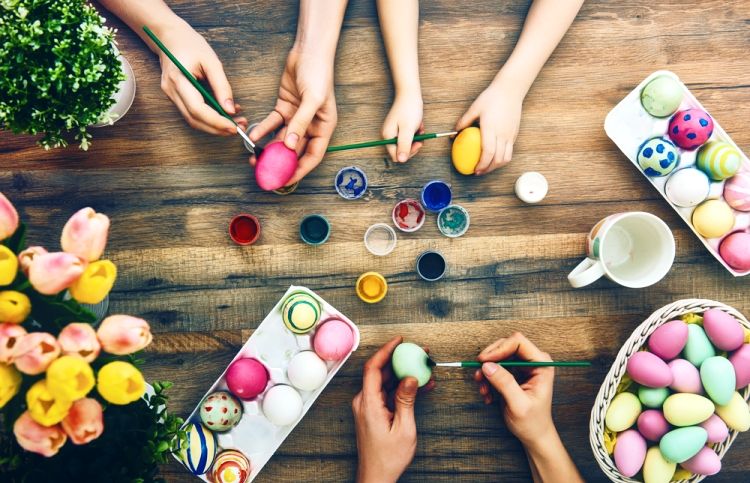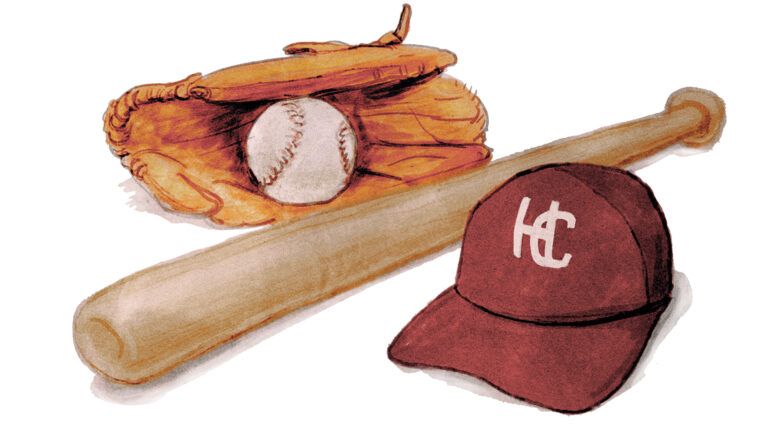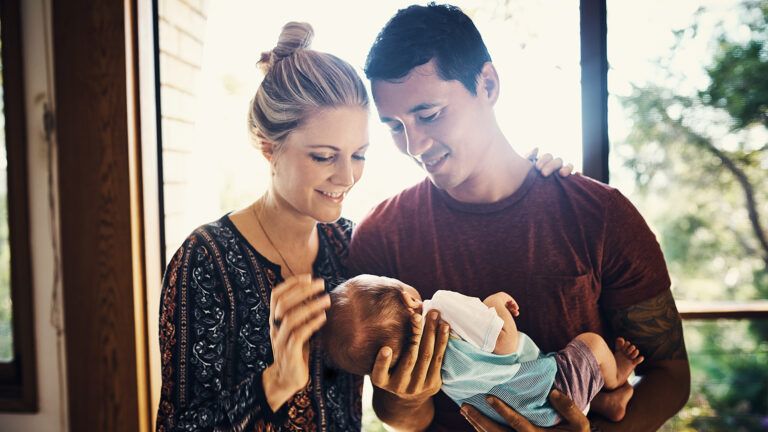Jelly beans, cellophane-covered baskets, giant candy bunnies. As I spotted all the trappings of Easter in the supermarket, I thought to myself, No wonder kids get confused about Easter.
Explaining Christmas was a cinch–the birth of Christ is simpler to grasp. Creches, carols and pageants all reinforce the message, making it easier to keep Santa Claus in perspective. But how could I explain to my two school-age children something as profound and mysterious as the Resurrection?
I knew that other parents were struggling with this, too. In fact, I took the greatest comfort in the advice of one friend who said, “Start with the traditions you already have.”
On Good Friday in our home we always color Easter eggs–three dozen. What could be a more obvious symbol of new life than eggs? Last year I told the children about a chick I once saw hatching in an incubator. I described how he poked his way out with his beak. “A new life. That’s what we celebrate at Easter,” I explained, “the new life we have in Christ.”
The next bit of inspiration came while I was shopping. I found a set of Bible storybooks for my son, Brinck, and came across a tiny gold cross necklace for Katy. I included these presents in the children’s Easter baskets, and since then I’ve added prayer journals, tapes, Scripture stickers and bookmarks. I like the tradition of Easter baskets, especially when I can include gifts that will nurture the children’s faith.
The third idea came from Guideposts contributor Posy Baker Lough. “Try something,” she suggested, “to give children a good visual image of the Resurrection.” She described a project at her church: The children were given caterpillars, and in the weeks prior to Easter the kids watched them spin cocoons, metamorphosing into butterflies.
“The butterflies were released just before Easter Sunday service,” Posy said. “Afterward, when we explained to the kids that the cocoon was like Christ’s death and entombment, and that his resurrection was like the butterfly, they understood.”
At Easter time, images of new life are usually easy to find: crocuses and daffodils blooming, lambs gamboling in fields, birds returning to their nests, green returning to the landscape. But sometimes spring comes late (or Easter comes early) and the holiday meets a gray, cold day. Then I think of something that happened to my friend Alison.
On an unseasonably cold Easter morning when Alison was 10 years old, her mother urged her to go outside to see what was in the yard. There in the snow her mother had made a rainbow of hundreds of brightly colored lollipops, sparkling like bits of stained glass. “It seemed like a miracle,” Alison says. “Magical, beautiful, full of mystery and wonder.”
And that, I realize, is what I want more than anything else to give my children: the miracle of Easter. It was God’s most astonishing miracle, the resurrection of Christ and the promise it held for us: eternal life.
So, finally, go to church on Easter. Put on your best clothes, take flowers from your garden, sing all the hymns with alleluias. Celebrate. Last Easter Sunday I was delighted when I overheard one youngster say, “Christmas is Jesus’ birthday, but Easter is everybody’s birthday.”
Yes, it is. Easter is the time for you and your children–for all of us–to joyfully celebrate our new birth.





